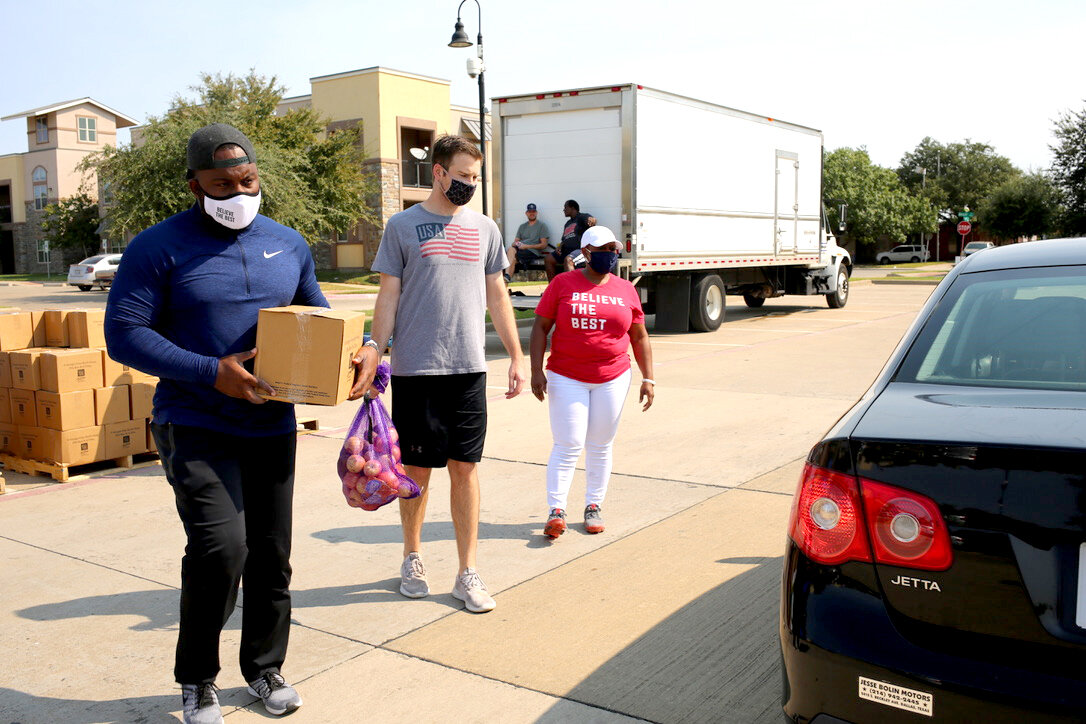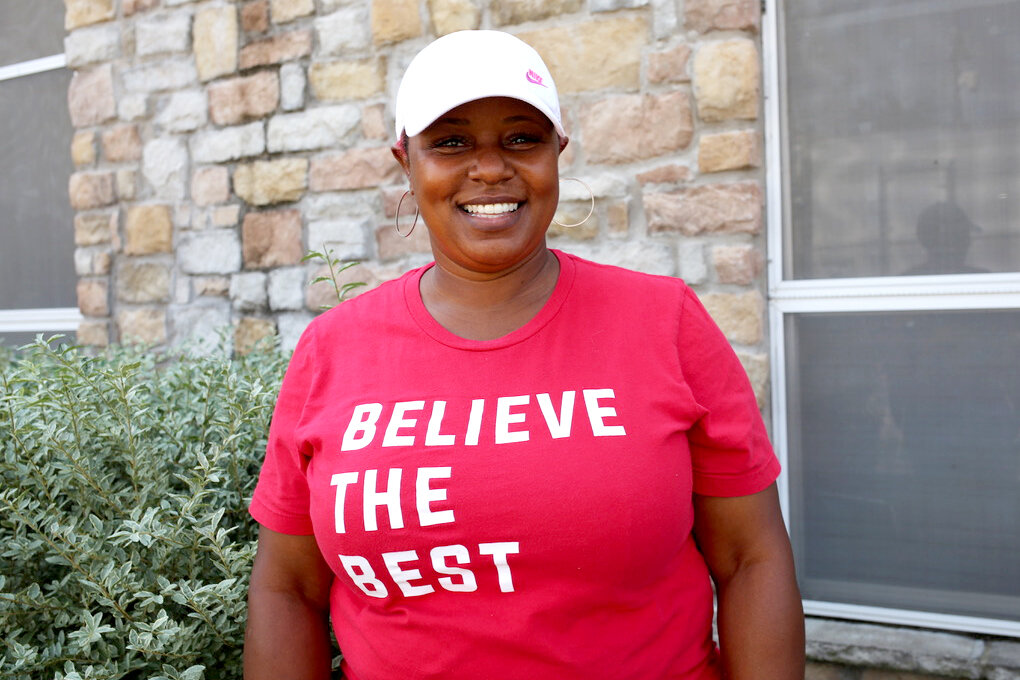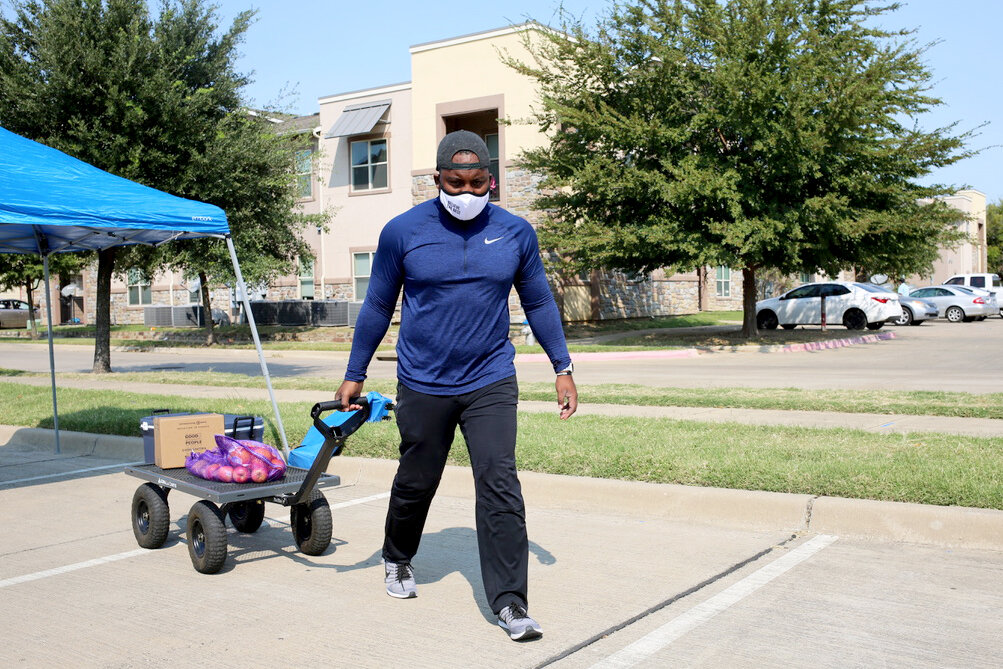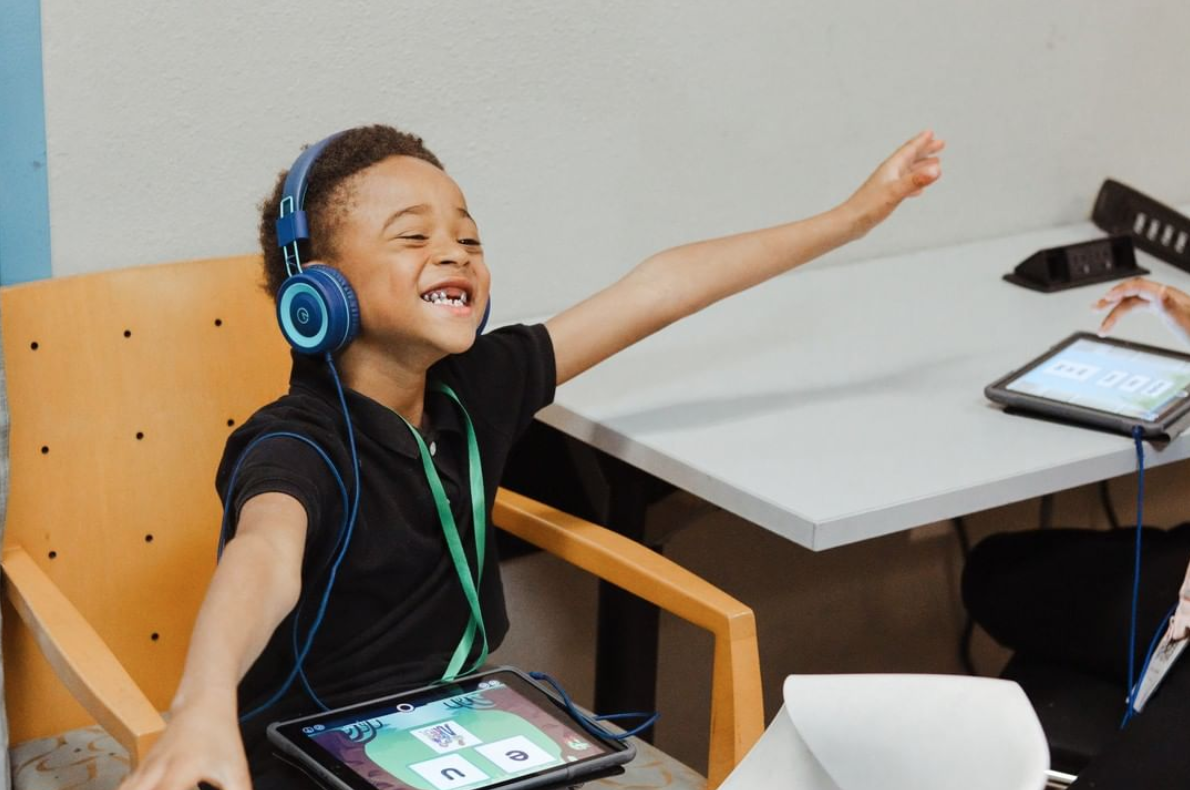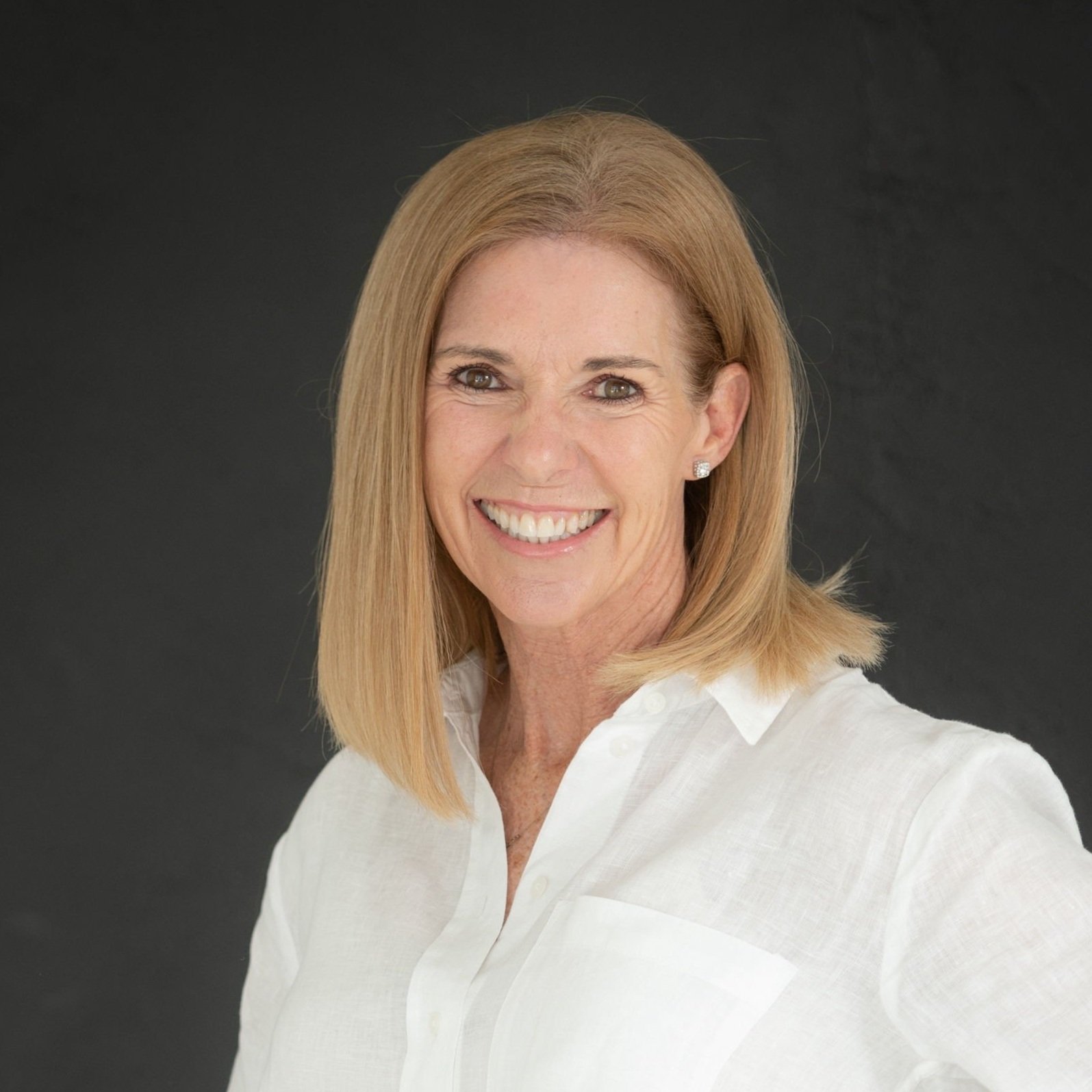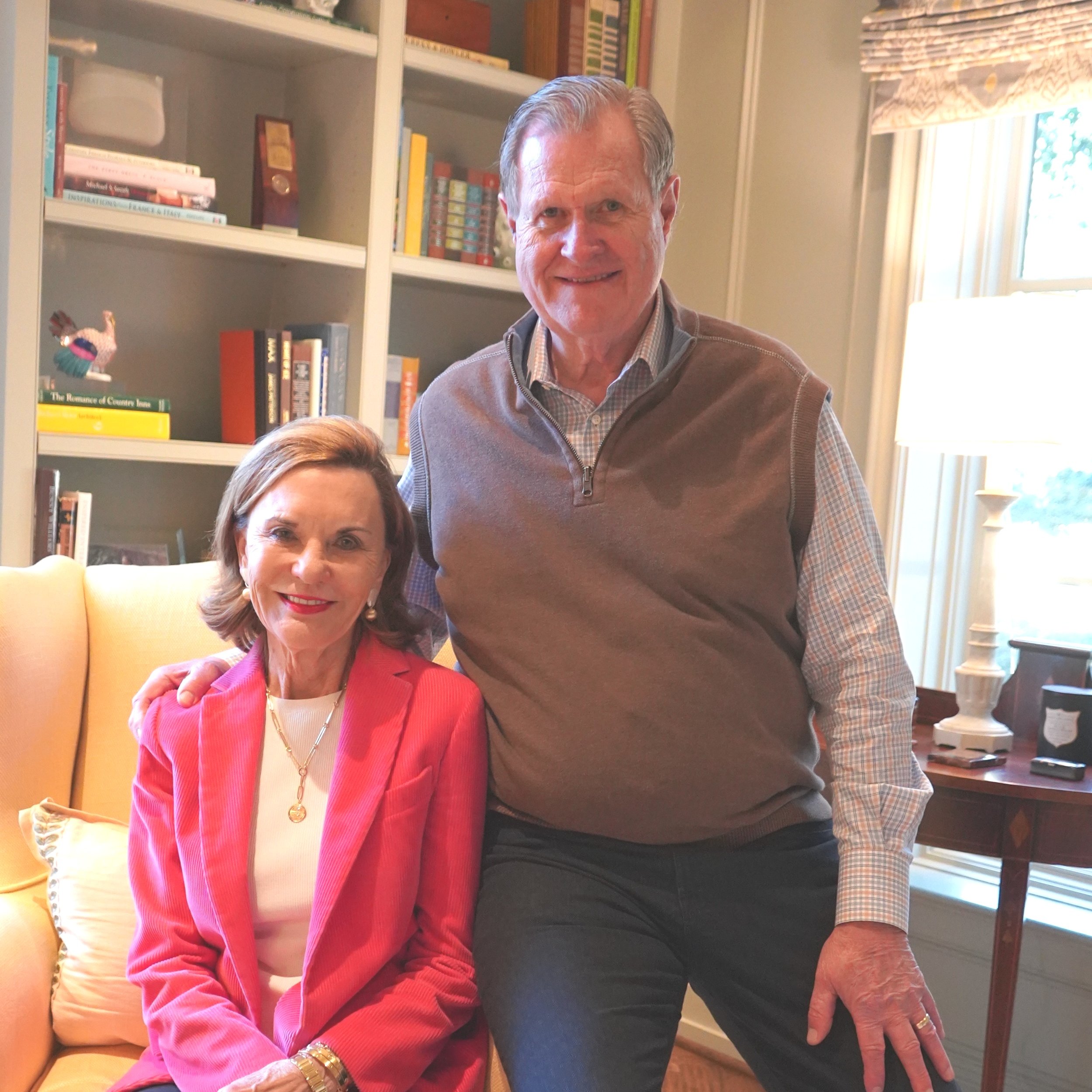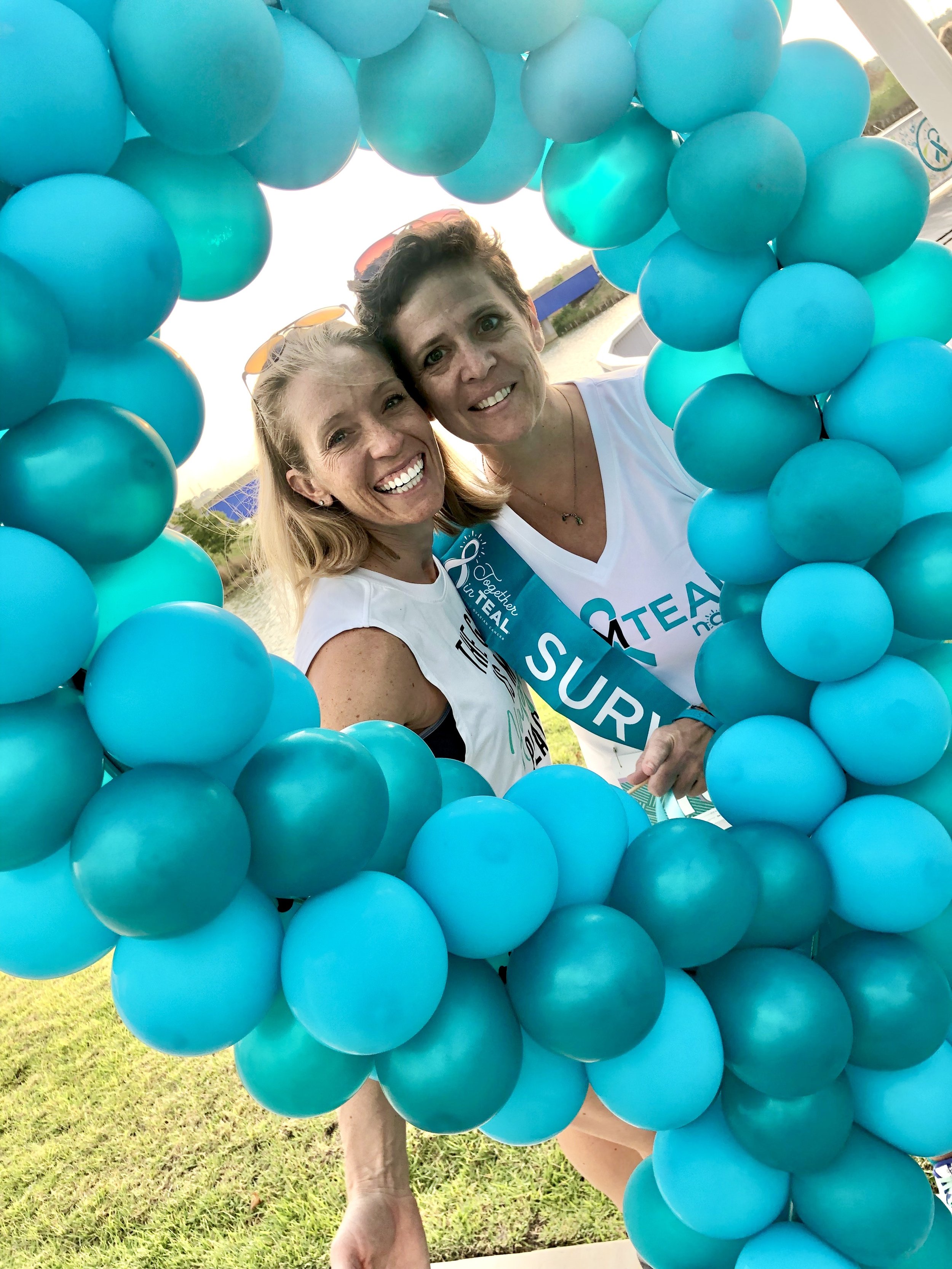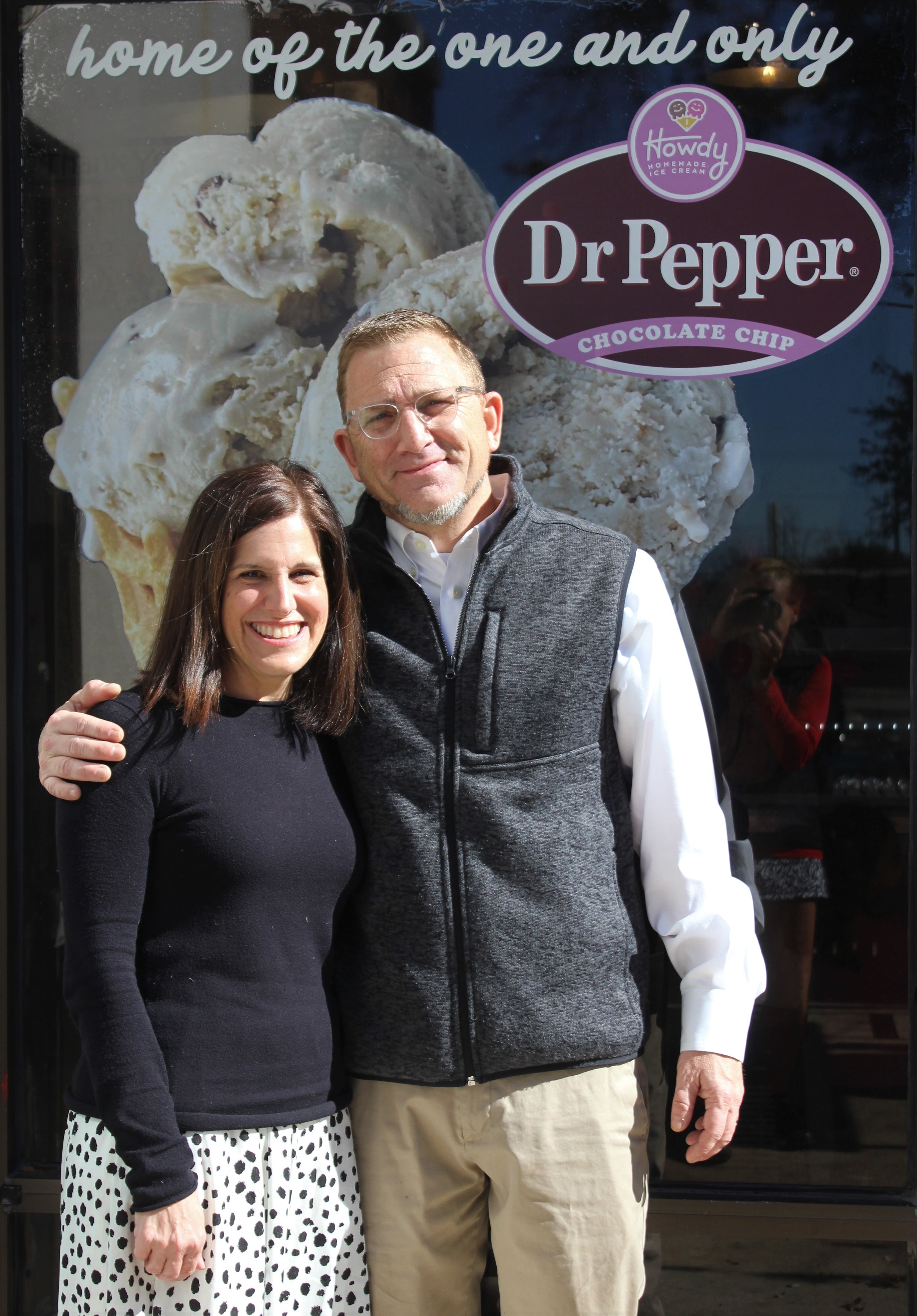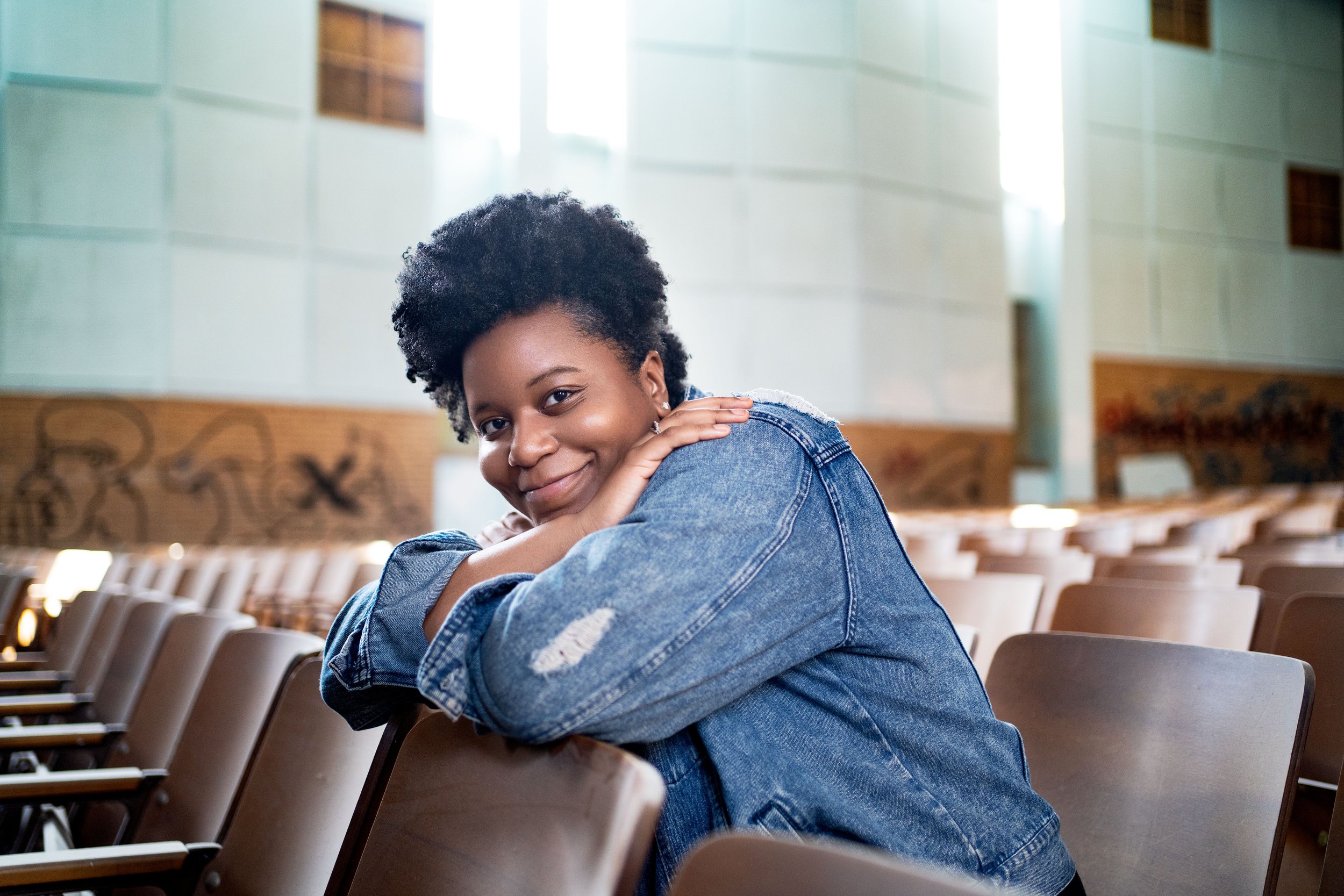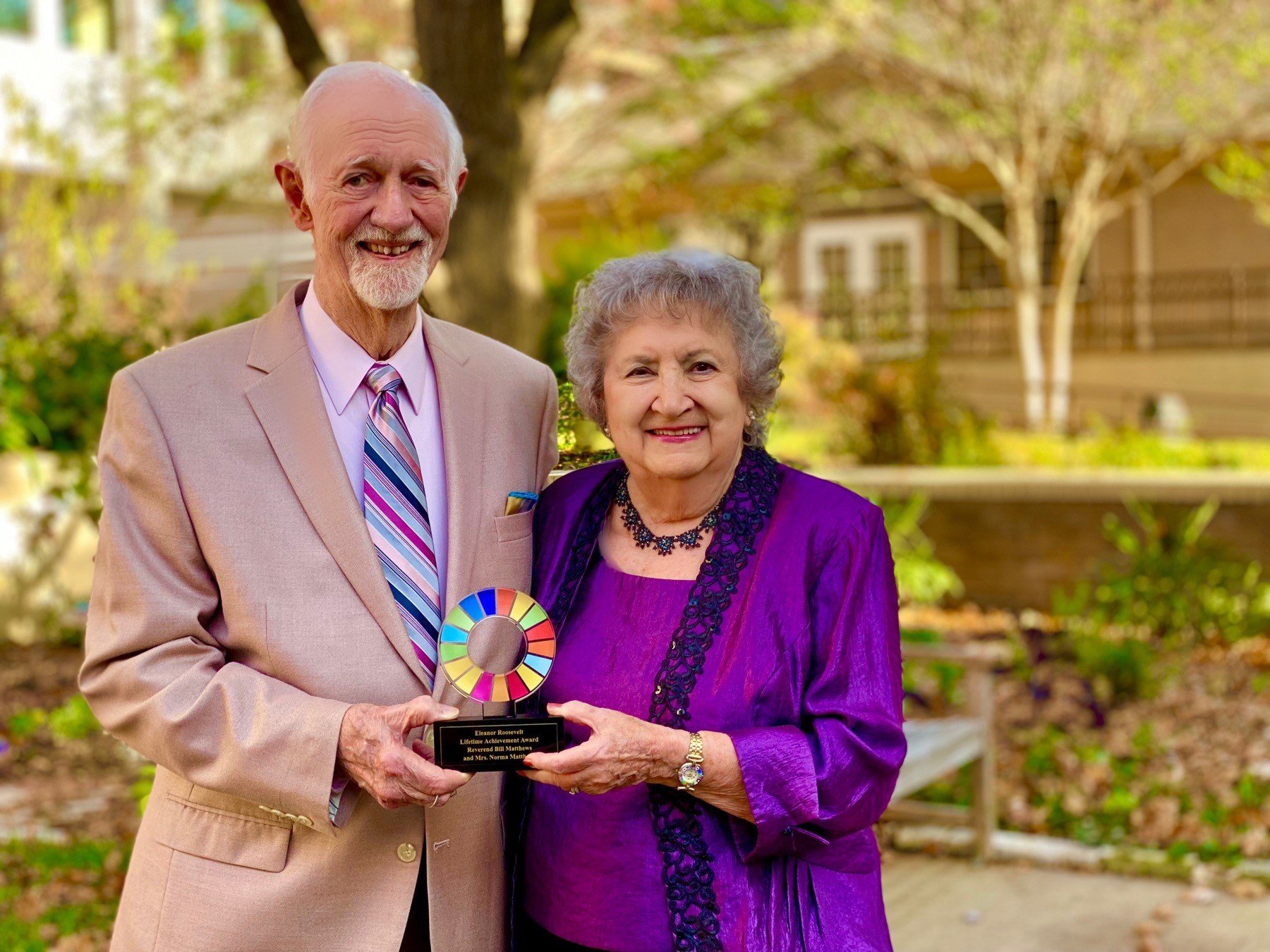Interview by Mary Martin. Photos by Jan Osborn.
RealityCheck.It and Dallas Doing Good teamed up to interview Darrion Lewis, the President of Behind Every Door. Follow our conversation for a reality check on the many changes needed in the way people see and feel poverty.
Darrion Lewis grew up in Dallas with a teenage mom and the support of his grandparents. His practical view of cyclical poverty led to his career working first as a Juvenile Probation Officer, and then launching his own nonprofit focused on working with at-risk young men in low-income communities. Now Darrion is leading the team at Behind Every Door, an organization that is changing the narratives and experiences that surround poverty through neighborhood presence, after-school programming, and meeting practical needs with real resources. Our conversation with Darrion is a reality check about how the conversation around poverty and service in low-income neighborhoods is overdue for a shift toward more relational understanding.
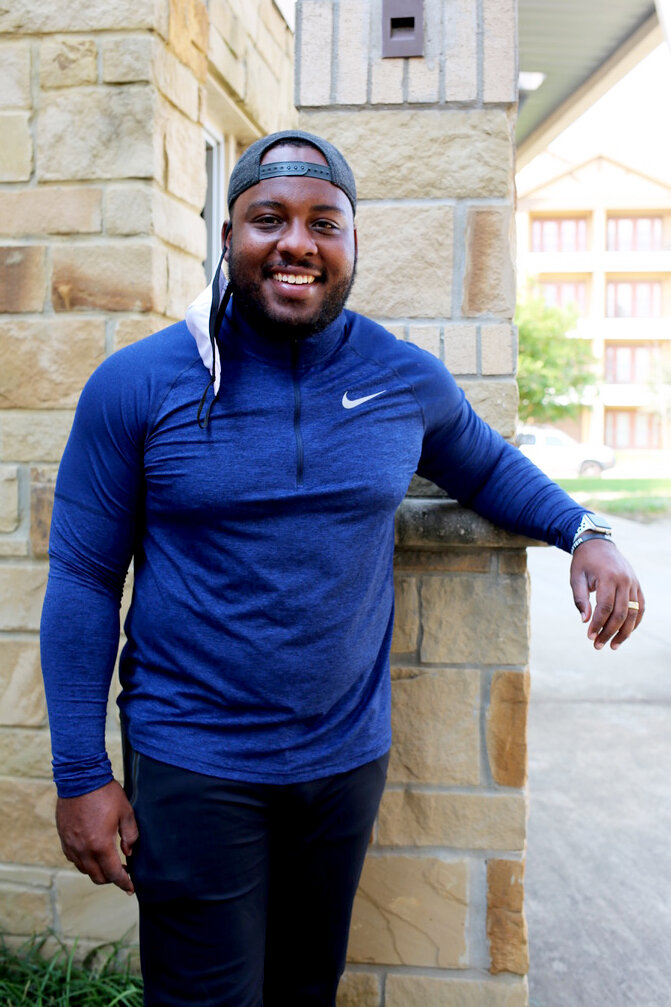
Can you tell us about how you came to be involved in Behind Every Door and the issue of family-focused economic development?
I came to Behind Every Door off the strength of the rapport built with Will Dowell through volunteering. At the time, my home church was with-in a mile radius of one of Behind Every Door’s Village Oaks locations and I would come to volunteer. There were opportunities presented by Will to come onboard; however, the timing was never right. I was a Dallas Juvenile Probation Officer at the time. The last time Will asked, it was definitely God’s timing and I accepted. My prior experience as a Juvenile Probation Officer coupled with early encounters as an employee with Behind Every Door really exposed the issue of family-focused economic development to me.
When you see multiple families who lack economic sustainability and the inability to have basic necessities to survive, it breaks your heart. When you notice that development in these neighborhoods reflect corner and liquor stores and there is not a grocery store or drug store close the community suffers. My hope is that Behind Every Door can come in and assist with barriers such as food scarcity, financial concerns, and developing leaders that can become economically self-sufficient one day. I grew up in a similar circumstance in a high-risk area, and I just want to be a part of the change I wish my community had when I grew up. I am no different than the families we serve.
What did growing up look like? Was there an emphasis on volunteering or giving back in your family?
Growing up for me consisted of being a son of a high school senior and spending the first six years of my life at my grandparents home because we were not economically capable to move on our own. My mother tried her best and there were times she would not eat so that my sister and I had a meal. I saw my mother cry at night sometimes because life was hard and she was trying to figure it out. God brought us through these hard times through community. People showing up to our door randomly with groceries when we had nothing. Checks randomly appearing in our mail box. It was all God. So, I understand what it means to grow up in an economic struggle. Giving back was never emphasized because we never had it to give. We would tithe to our church but nothing more. Sports taught me about the importance of volunteering and giving back to my community.
Darrion and his team help load groceries into a waiting car during a neighborhood food distribution.
Kea Westbrook, Director of Changing the Narrative
What are some of the ways your organization helps the community? Can you share a specific story of a family impacted by the work at Behind Every Door?
For me Behind Every Door helps communities through presence. We are in the community doing life together with the residents so we have mourned together during difficult times, like last summer when two teens and a nine year old little girl were killed in senseless gun violence in separate incidents. But we also celebrate accomplishments together, like seeing our first group of high school seniors graduate and head to college, or coaching moms as they learn how to improve communications with their kids which not only increases the family’s social emotional health but it does the same for the community (healthy families, healthy communities).
When all of our lives changed in March, we were fortunate to have authentic meaningful relationships so we were able to meet immediate needs as they arose. Behind Every Door was able to continue serving our students through online engaging activities while also providing food and financial relief to families. We assembled and distributed what we call Love Your Neighbor Boxes. There are three different box types—food, cleaning materials or hygiene supplies. As well, our partnership with Stand Together allowed us to provide over $30,000 in direct financial relief among our families. That was significant because we know a grandfather who is the main caregiver for his grandkids but was recently diagnosed with cancer. His current condition has made it difficult for him to provide for his family as he has previously. However, because of our relief efforts and our dynamic staff, we have been present and a support for him during this time, so that he can focus on his health and his grandbabies. There are a plethora of stories from which I could draw to share about the work we do, but they all are made possible first because we are present in the community and the families we serve are our neighbors.
How has COVID-19 played into how you communicate a new perspective around poverty and community support?
A student in Behind Every Door’s after-school program in 2019. (Photo courtesy of Behind Every Door.)
COVID-19 has not provided a need to communicate a new perspective around poverty and community, but it has provided increased opportunity to share how we view poverty and it has shifted some ways we support communities. Behind Every Door seeks to help communities, families, and individuals see, embrace and pursue opportunities. A perfect example of what this looks like is when we had some moms in one of our communities ask for our help in educating their children. Several mothers who have grown increasingly concerned with the DISD (concerns that started long before COVID19), decided they could homeschool their kids and asked if we would guide them through the process.
Our most recent survey revealed the top three issues our residents are concerned about are finances, food, and education, so the mothers asking for assistance to begin a homeschool was not outside of the shared needs. So what we have an opportunity to communicate is, we do not own poverty or its solutions. These mothers shared with us the areas where they felt they were lacking (impoverished), they then articulated what they felt the solution might be and we are just present to coach them through the process. COVID-19 has come with its challenges for sure, but we are grateful that along with issues come opportunities. This season has provided the opportunity for us to communicate that when the right people are defining poverty, we are able to reimagine the solutions, and together pursue the possibilities.
If you would like to learn more about Behind Every Door and how you can support their work, visit their website at behindeverydoor.org.
Featured
Featured
When Kathy and Larry Helm heard about The Senior Source’s 60th Birthday Diamond Dance-Off, they knew they had to put on their dancing shoes! For the Helms, this event combined two of their passions into one. Celebrating and supporting The Senior Source, a Dallas-area nonprofit that has been serving older adults for 60 years, and dancing together, which they have been doing since they were high school sweethearts. Both Kathy and Larry have chaired the board of directors of The Senior Source and have been proud supporters since 1998. It seemed only fitting they should be voted into the finals to dance on stage at Klyde Warren Park this past summer.
In 2020, more than 912,000 women were diagnosed with some form of cancer in the United States alone. During that same pandemic year, countless medical appointments were canceled while people were social distancing, and yet still each day nearly 2,500 women heard the news, “you have cancer.” There is no doubt that these words can be crushing to hear, but what’s equally crushing is the lack of tangible, encouraging support that exists to help women feel beautiful, strong or “normal” before, during and after cancer treatment.
When Tom Landis opened the doors to Howdy Homemade in 2015, he didn’t have a business plan. He had a people plan. And by creating a space where teens and adults with disabilities can find meaningful employment, he is impacting lives throughout our community and challenging business leaders to become more inclusive in their hiring practices.
Have you ever met someone with great energy and just inspired you to be a better you? Nitashia Johnson is a creator who believes by showing the love and beauty in the world it will be contagious and make an impact. She is an encourager and knows what “never give up” means. Nitashia is a multimedia artist who works in photography, video, visual arts and graphic design. Her spirit for art and teaching is abundant and the city of Dallas is fortunate to have her in the community.
The United Nations Association Dallas Chapter (DUNA) honored Rev. Bill and Norma Matthews for their ongoing commitment, helping advance the United Nations Sustainable Development Goals agenda by promoting peace and well-being.

